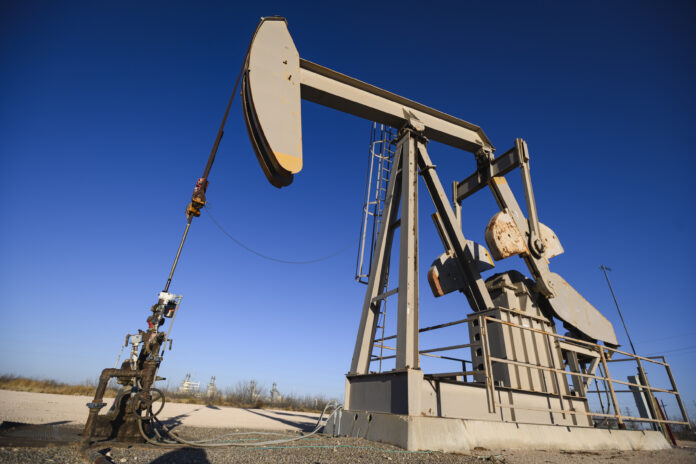
Considering the battle royal that’s been waged between federal regulatory agencies and the energy industry since President Biden took office in January 2021, the question arises, who’ll end up winning?
State Rep. Brooks Landgraf and Waco economist Ray Perryman cite a number of factors in saying the industry will overcome and prevail like it always has through more than a century of triumphs and travails.

“Despite the regulatory hurdles posed by agencies like the EPA, the resilience of the Permian Basin underscores the lasting economic strength of the energy sector,” said Landgraf, an Odessa Republican. “Oil and gas have long served as indispensable drivers for global prosperity, lifting billions from poverty and cementing America’s stature as a global leader.
“While certain administrations may adopt hostile stances towards fossil fuels, the unyielding spirit of the oil patch persists and the demand for these commodities remains.”
Landgraf said the people who do the hard physical work of the oilfield are the real core of its success.
“Amidst the present challenges it’s crucial to acknowledge the dedication of the men and women in the oil patch whose relentless efforts and innovation continue to propel the industry forward,” he said. “Their resilience not only ensures the industry’s sustainability, it also shapes our energy landscape for the better.
“In the face of adversity, history has demonstrated that the energy industry’s ingenuity and adaptability will prevail. Ultimately, I am confident that market forces will affirm the enduring value of oil and gas in fueling economic growth and meeting the world’s energy needs.”
Perryman said it “is frustrating when politics and even good intentions get in the way of effective policy, but it happens in many contexts involving both parties.
“In situations such as the one confronting the energy industry at the moment, the ultimate outcome is predictable, but the path to get there will likely be problematic,” he said.
Perryman said the missing element that’s frequently overlooked in current policy conflicts is that billions of people around the world will need the energy provided by the oil and gas industry for decades to come.

“While climate change is a critical issue that must be dealt with, the pace of increase in the demand for power and other forms of energy simply cannot be met without the responsible production of oil and gas,” he said. “Although this fact is often ignored in the debate, it is certainly not a secret.
“Forecasts by the U.S. Department of Energy under widely varying assumptions demonstrate ongoing and increasing demand as do the forecasts from our firm and many others. An ‘all-of-the-above’ approach will be needed with responsible development of the conventional fuels that are crucial to sustaining geopolitical stability and promoting economic growth.”
Perryman said adequate energy supplies are essential to eliminating the extreme poverty around the globe that developed nations will find it increasingly hard to tolerate.
“It is also highly unlikely that people in Europe will be compelled to indefinitely rely on the whims of Russia to avoid freezing in the winter due to insufficient natural gas when readily available alternatives such as U.S. LNG are available,” he said. “Over time the fallout from restrictions on the responsible production of energy in the United States will come to dominate the decision process, although there will likely be some unfortunate machinations in the interim.”
He said it is important to reduce the emissions profile of the production and use of oil and natural gas at every stage of the process, but that can be accomplished with substantial progress already having been made.
“The bottom line is simply that when something has to happen, it will,” Perryman said. “A solution will be found that includes domestic oil and gas production, although we are likely to see a variety of shortsighted decisions, knee-jerk reactions, political maneuvers and other wrong turns along the way.
“These detours in essence create inefficiencies, cost escalation, distorted risk profiles and unnecessary delays in achieving the ultimate goals of resolving the climate crisis while providing the energy resources needed to promote economic growth and human progress.”



